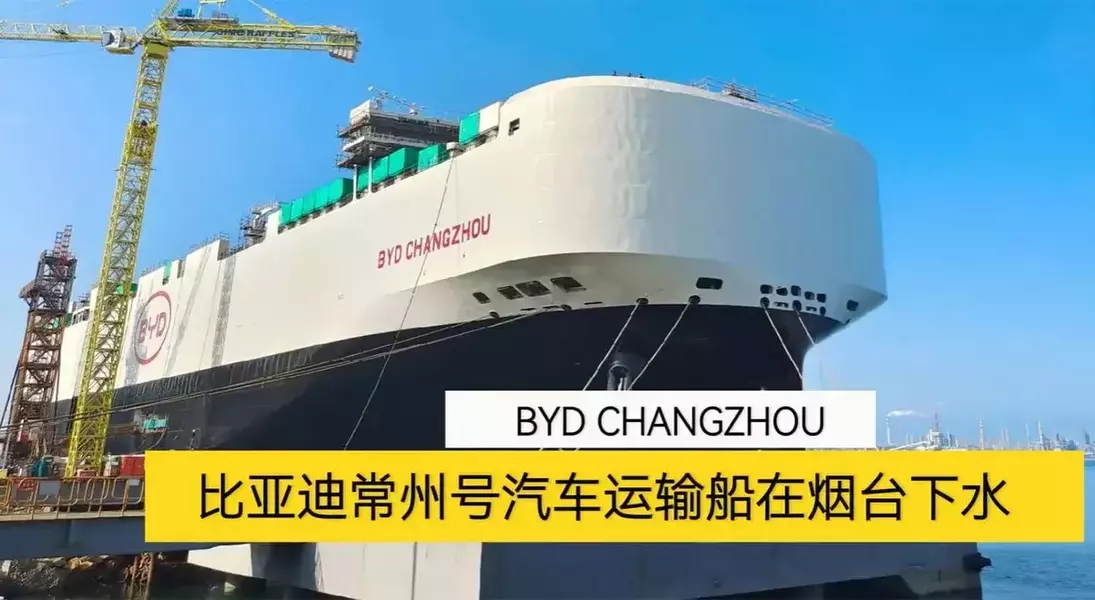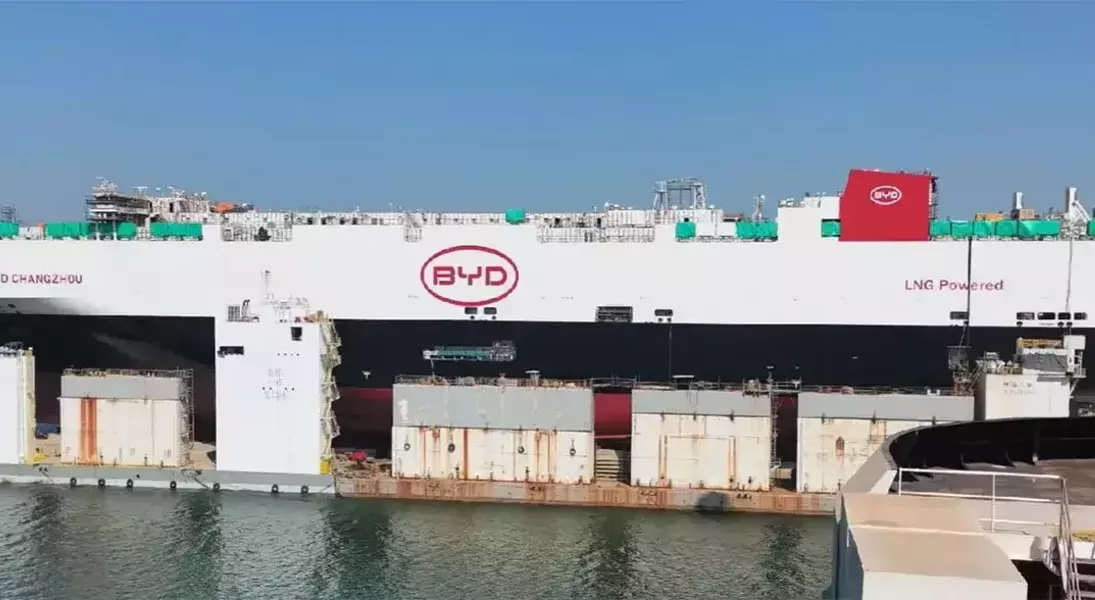BYD's Expanding Fleet: Charting a New Course in Automotive Logistics
BYD, the Chinese new energy vehicle (NEV) powerhouse, is making waves in the automotive industry with its growing fleet of car carriers. The launch of the BYD Changzhou, the third vessel in the company's fleet, marks a significant milestone in BYD's efforts to streamline its logistics and distribution operations.Navigating the Future of Automotive Logistics
A Vessel Named After the Production Base
BYD Changzhou is the second BYD vessel to be named after the city where its production base is located, following the BYD Hefei. This strategic move underscores the company's commitment to strengthening its ties with the local communities where it operates. By naming its vessels after these cities, BYD is not only honoring its roots but also fostering a sense of pride and ownership among its employees and the surrounding communities.The launch of the BYD Changzhou in Yantai, Shandong province, is a testament to the company's growing ambitions in the automotive logistics space. Changzhou, a city in Jiangsu province, is home to one of BYD's four passenger car production plants, which began operations in January 2022. The new vessel will undoubtedly play a crucial role in the efficient transportation and distribution of BYD's vehicles, including models such as the Yuan Plus and Seal.Expanding the Fleet: A Strategic Move
BYD's decision to expand its fleet of car carriers is a strategic move that aligns with the company's rapid growth in the NEV market. Over the past few years, BYD has emerged as China's largest NEV maker, and its sales have been soaring both domestically and internationally. In the first nine months of 2022, BYD sold 2,747,875 NEVs, a 32.13% increase year-on-year, with 297,881 units sold overseas, a remarkable 104.70% increase.To keep up with this exponential growth, BYD has announced plans to put more car carriers into service. The company's first car carrier, BYD Explorer No.1, completed its maiden voyage in January 2022, loading vehicles at Yantai Port in Shandong province and Xiaomo Port in Shenzhen. BYD has further revealed that it will have seven more ro-ro vessels in operation over the next two years, a clear indication of its commitment to strengthening its logistics capabilities.Partnering for Success
BYD's foray into the car carrier business is not a solo endeavor. The company has collaborated with industry partners to bring its vision to life. For instance, the BYD Explorer No.1 was not owned by BYD but was built by CIMC Raffles, a subsidiary of state-owned China International Marine Containers (CIMC), for international shipping company Zodiac Maritime.Similarly, the BYD Hefei, a 7,000-vehicle dual-fuel automobile ro-ro vessel, was built by Guangzhou Shipyard International Co Ltd for BYD. This partnership approach allows BYD to leverage the expertise and resources of established players in the maritime industry, ensuring the seamless integration of its logistics operations.Driving Sustainability in Automotive Logistics
BYD's investment in car carriers is not just about logistics efficiency; it also reflects the company's commitment to sustainability. The BYD Hefei, for example, is a dual-fuel vessel, capable of running on both traditional fuels and cleaner alternatives. This aligns with BYD's broader focus on developing and promoting environmentally friendly transportation solutions, a key pillar of its business strategy.As BYD continues to expand its NEV sales both domestically and globally, the company's investment in its own fleet of car carriers will play a crucial role in ensuring the timely and efficient delivery of its vehicles to customers. By taking control of its logistics operations, BYD can optimize its supply chain, reduce costs, and enhance the overall customer experience.Moreover, BYD's foray into the car carrier business represents a strategic diversification of its operations, allowing the company to leverage its expertise and resources in new areas. As the automotive industry continues to evolve, BYD's ability to adapt and innovate will be crucial in maintaining its competitive edge and cementing its position as a global leader in the NEV market.








